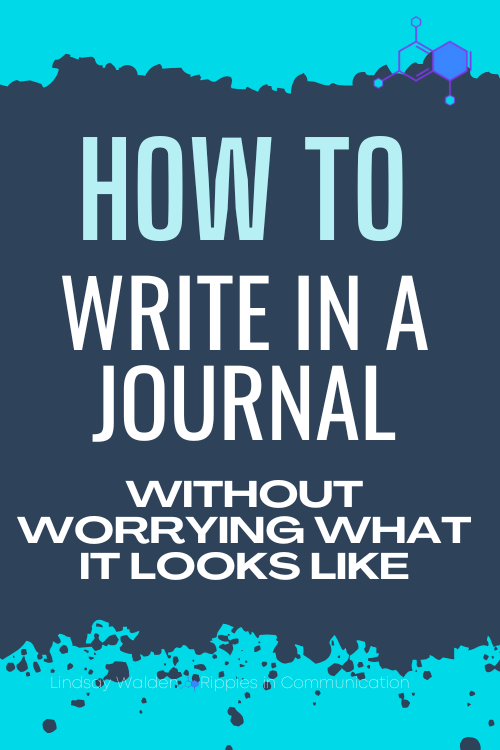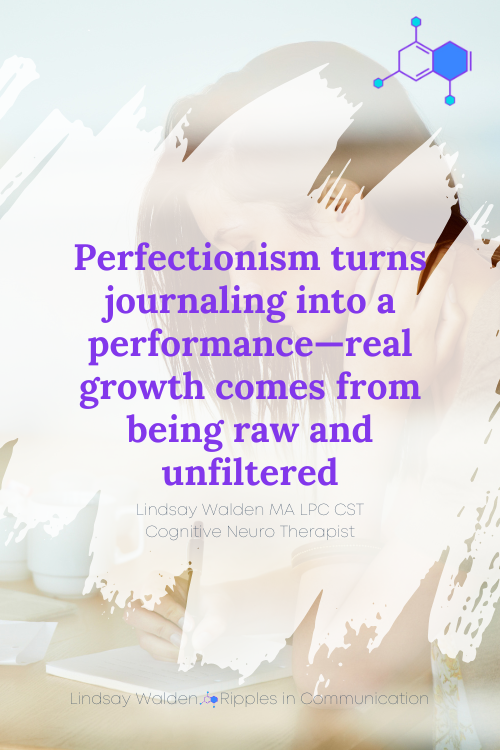The Reasons Most People Quit Journaling (It’s Not About Time)
Think back to the last time you tried to start journaling.
Did you ever find yourself thinking…
“I don’t know what to write.”
“My handwriting is a mess.”
“I missed a few days—now I feel behind.”
“I don’t want to ruin a fresh new journal.”
If any of these sound familiar, you’re not alone.
These thoughts all stem from one thing: perfectionism.
And perfectionism is the #1 reason people abandon journaling before they ever see its benefits.
Because instead of using journaling as a tool for relief and clarity, they turn it into a performance.
But here’s the truth:
🚫 Journaling is not about writing beautifully.
🚫 It’s not about filling in every page.
🚫 It’s not about doing it “the right way.”
It’s about getting your thoughts out of your head—even if they’re messy, unstructured, or imperfect.
The Anytime Journal (get your free Anytime Journal Sampler) is built differently.
No structure. No rules. No pressure.
You write when you need it, how you need it—without guilt.
WAIT! Before you continue, make sure you grab your FREE CNT Toolkit Sampler!
Have you grabbed your FREE CNT Toolkit Sampler yet? It’s packed with science-backed tools designed to help you regulate emotions, manage stress, and develop deep self-awareness. If you’ve ever felt overwhelmed by your reactions or stuck in negative thought patterns, this toolkit will give you the proven strategies I use with clients to help them strengthen emotional neutrality, rewire unhelpful responses, and build lasting resilience. Inside, you’ll find practical exercises and guided reflections to help you navigate challenges with clarity and confidence. Enter your email below, and I’ll send it straight to your inbox!
Perfectionism Kills Self-Expression
Most people don’t realize that perfectionism blocks self-awareness.
When you’re worried about how something looks, you:
❌ Censor yourself
❌ Overthink every word
❌ Avoid writing about difficult emotions
❌ Procrastinate instead of actually journaling
Instead of using your journal as a safe place to be real, it becomes another thing you feel like you have to get right.
But let me ask you this:
Would you rather have a “perfect” empty journal or a messy one full of real insights?
Your future self will never look back at your journal and wish it was more polished.
They’ll be grateful you wrote anything at all.
The “Messy Journaling” Method (That Actually Works)
If perfectionism is stopping you from journaling, try this 3-step approach instead:
Step 1: Write as Fast as You Can (No Pausing, No Editing)
Set a timer for 2 minutes and write as fast as possible.
Don’t think.
Don’t analyze.
Just dump whatever is in your brain onto the page.
Even if all you write is:
“I don’t know what to write, but I’m doing this anyway…”
OR
“I read about this in blog post so I’m trying it…”
That’s still progress.
The goal is not to write well—it’s to write at all.
Step 2: Leave Your Thoughts Unfinished
Most people feel like they need to write a full, complete entry—but you don’t.
Instead, stop mid-sentence if you want to.
Write something like:
👉 “I’m really frustrated about… (I don’t know, I’ll figure it out later).”
👉 “Right now, I feel like I have no idea where I’m going with this…”
This trains your brain to let go of control.
Because the truth is—unfinished thoughts are still valuable.
Step 3: Walk Away Without Reading It
This is the hardest part for perfectionists.
When you finish writing, don’t re-read it immediately.
Because if you do, your inner critic will kick in and start thinking:
❌ “This sounds stupid.”
❌ “I should have written something deeper.”
❌ “I need to go back and fix this.”
But the point of journaling isn’t to create a polished product.
It’s to process emotions, get clarity, and clear mental space.
Let your journal be messy.
Let it be unfinished.
Let it be imperfect.
That’s how you actually benefit from it.
Try This Right Now: The “Unfinished Sentence” Challenge
If you’ve struggled with perfectionism in journaling, try this right now:
1️⃣ Grab a notebook (or open your Notes app).
2️⃣ Start a sentence—but don’t finish it.
3️⃣ Stop mid-thought and walk away.
Examples:
“Right now, I feel like…”
“The one thing I want to say but haven’t is…”
“If I could be brutally honest with myself, I would admit…”
Then—leave it.
Come back later if you want.
Or don’t.
It doesn’t matter.
The goal is to train your brain to journal without pressure.
How the Anytime Journal Helps You Overcome Perfectionism
Unlike traditional guided journals that force structure, the Anytime Journal is:
✅ Messy by design. You don’t have to fill in a certain page every day.
✅ Flexible. You can write one word, one sentence, or five pages—whatever you need.
✅ Unstructured. No prompts? No problem. You write about whatever’s on your mind.
This means:
✔ If you skip a few days, you’re not “behind.”
✔ If your writing is messy, you’re doing it right.
✔ If you don’t finish an entry, it’s still valuable.
It’s about making journaling work for you—not making yourself work for journaling.
Final Thought: Done Is Better Than Perfect
Most people spend so much time thinking about journaling the right way that they never actually do it.
But done is always better than perfect.
A single messy, honest sentence is more valuable than a beautifully blank page.
If you take nothing else from this post, remember this:
The best journal entry is the one that exists.
It doesn’t have to be neat.
It doesn’t have to be deep.
It just has to be real.







